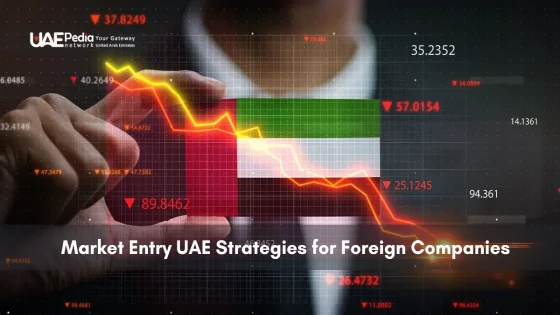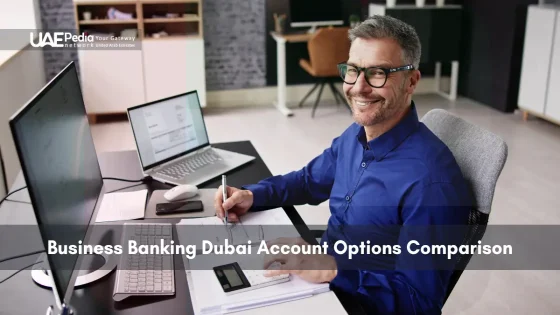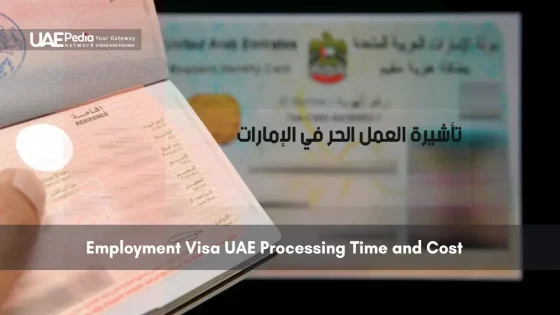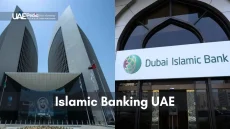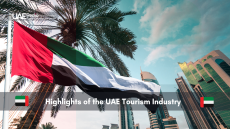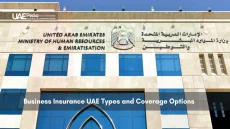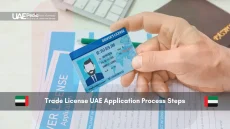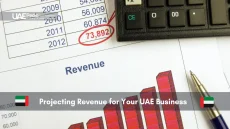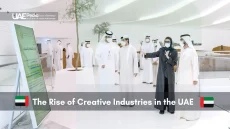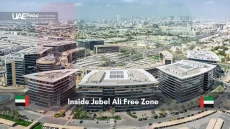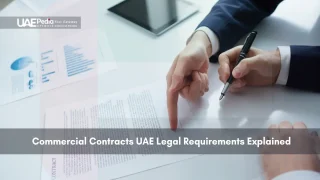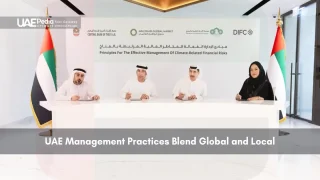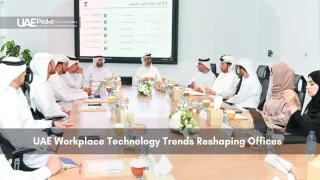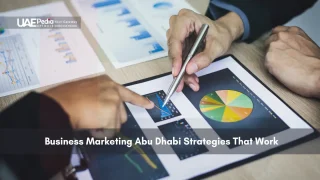UAE economy extends far beyond oil and luxury hotels. Its gleaming towers host AI startups, sustainable farms and more—all requiring precise licensing, each requiring precise navigation through licensing rules. Whether you’re launching a tech venture or a beachside café, understanding how to operate legally here is as vital as your business plan.
Every business in the UAE requires a trade license to comply with federal and emirate regulations. These permits vary by sector: some industries face strict oversight (think finance or healthcare), while others enjoy more flexibility. Getting this right means avoiding fines and unlocking banking services, visas, and even office space.
Why does this matter? The UAE’s economy thrives on diversity—trading hubs coexist with robotics labs and eco-tourism projects. Proper documentation isn’t just red tape; it’s your roadmap to tapping into tax-free zones, global logistics networks, and a consumer base spanning 200 nationalities.
- Commercial licenses align operations with federal and emirate-specific regulations
- Regulated sectors require specialized approvals, while others have streamlined processes
- Free zones offer tailored packages for manufacturing, services, and innovation-driven projects
“Check This Out: Essential Steps for Free Zone Company Formation in UAE“
Dynamic UAE business landscape
Beyond the glitz of skyscrapers, the Emirates’ real magic lies in its innovation hubs and agile policies. Think blockchain farms sprouting beside spice souks, all guided by the Department of Economic Development (DED). Their role? To fuel growth while keeping rules clear—like a GPS for your entrepreneurial journey.
DED licensing reforms driving growth
The DED doesn’t just issue permits—it architects ecosystems. Recent reforms, including 100% foreign ownership and digital licensing, have simplified procedures and encouraged innovation. Over 40% of startups obtain initial license approval within 48 hours via digital portals.
UAE global business advantages
State-of-the-art ports, tax-free zones, and a workforce from 190 countries—this is where red tape becomes a red carpet. The regulatory authority balances oversight with freedom, letting you focus on scaling, not paperwork. As one investor told me: “They build highways, not speed bumps.”
Since 1 June 2023, mainland profits above AED 375,000 attract 9 % corporate tax, while qualifying free-zone income remains at 0 %—effective structuring can preserve tax advantages. Ref.: “Ministry of Finance. (2024). UAE Corporate Tax to Bolster Future Economic Sustainability. Ministry of Finance.” [!]
UAE business licensing overview
Imagine navigating a bustling souk of opportunities—each stall represents a different venture needing its own key to operate. That’s licensing here. Whether you’re opening a beachside smoothie bar or a robotics lab, choosing the right permit determines how smoothly your doors stay open.
“Learn More About: UAE Free Zone Registration Requirements“
Understanding Regulated vs. Unregulated Activities
Not all ventures play by the same rules. Think of regulated sectors like healthcare or finance as guarded spice stalls—they need extra approvals and oversight. Unregulated ones? More like open-air markets: set up faster but still follow basic safety checks.
| Regulated Activities | Unregulated Activities | Approval Time |
|---|---|---|
| Pharmaceuticals | Consulting | 30+ days |
| Banking | E-commerce | 5-7 days |
| Aviation | Retail | 14-21 days |
The Role of the Department of Economic Development (DED)
Meet your guide through this maze—the DED. They oversee 2,000+ commercial activities, from food trucks to AI startups. Their digital portals cut registration time by 60%, letting you focus on scaling instead of paperwork.
Three main licenses exist: commercial (for trading goods), industrial (manufacturing), and professional (skills-based services). One tech founder shared: “The DED didn’t just approve my license—they connected me to logistics partners.” That’s the Emirates’ secret: rules that build bridges, not walls.
Decoding License Types: Professional, Commercial, Industrial, and Service
Licenses here aren’t just papers—they’re golden keys unlocking sector-specific kingdoms. Whether you’re designing apps or shipping textiles, picking the right permit shapes your costs, timelines, and growth potential. Let’s crack these codes together.
Key Requirements and Approvals
Professional licenses (think architects or consultants) demand educational certificates and local sponsorship. Commercial permits for trading goods require detailed product lists and customs agreements. One logistics founder told us: “Getting our industrial license felt like assembling IKEA furniture—clear steps, but you need the right tools.”
| License Type | Key Requirements | Typical Fees (AED) | Sector Examples |
|---|---|---|---|
| Professional | Degree certificates, office lease | 12,000 | Consulting, IT services |
| Commercial | Product catalog, customs code | 15,000 | Retail trading, import/export |
| Industrial | Factory plans, safety permits | 25,000 | Textile manufacturing, food processing |
| Service | Staff certifications, equipment lists | 18,000 | Healthcare, education |
Launching a healthcare facility requires a 10-working-day review by Dubai Health Authority and submission of detailed engineering layouts before activation—omitting these steps stalls licence issuance. Ref.: “Dubai Health Authority. (2024). New Facility License service description. Dubai Health Authority Sheryan Portal.” [!]
Examples of Business Sectors and Their License Needs
See how this plays out: A beachwear trading company needs a commercial license plus tourism approvals. Their fees? Around 16,500 AED. Meanwhile, a solar panel factory requires industrial permits and environmental checks—but gains port access for global shipments.
Free zones like Jebel Ali slash paperwork for license requirements, offering all-inclusive packages. As one entrepreneur noted: “Choosing the right category isn’t bureaucracy—it’s strategy. Get it wrong, and you’re stuck in sand dunes.”
“You Might Also Like: Essential UAE Business Compliance Requirements“
Business activity UAE: Growth Prospects and Sector Insights
Picture a desert oasis where 2,000+ ventures bloom—each tile in this economic mosaic demands precise placement. The Emirates’ 13 core activity groups range from advanced manufacturing to boutique tourism, each with subsectors revealing hidden niches. Let’s unpack where growth lives now.
“Discover More: Guide to Setting Up Business in UAE Free Zones“
Activity Groups and Subsector Breakdowns
Think of sectors as puzzle pieces. Manufacturing isn’t just factories—it’s 3D-printed construction materials and solar panel production hubs. Trading spans everything from spice exports to NFT marketplaces. One logistics CEO told us: “Our subsector (cold storage for pharma) grew 40% last year—it’s about spotting the tiny cracks in the market where light gets in.”
| Sector | High-Growth Subsector | 2024 Growth Rate |
|---|---|---|
| Manufacturing | Electric vehicle components | 22% |
| Services | AI-powered healthcare platforms | 34% |
| Trading | Bio-based construction materials | 18% |
Fee Structures and Regulatory Considerations
Licensing costs mirror sector complexity. A general trading permit starts at AED 15,000, while specialized manufacturing approvals can hit AED 25,000+. Why the spread? Heavy industries need environmental impact studies—often requiring 60-90 days for approval. But here’s the hack: free zones like Sharjah’s Hamriyah offer bundled packages (license + warehouse) for AED 18,500 annually.
Pro tip: Align your venture with national priorities (renewable energy, smart logistics) to tap into faster processing and incentives. As a drone tech founder shared: “Our prototype testing got approval in 11 days—half the usual wait—because we fit the ‘Dubai 2040’ vision.”
- Service sector fees rise with staff certifications and office size requirements
- Production facilities must budget for safety audits (AED 3,500-7,000 per inspection)
- E-commerce ventures benefit from streamlined digital licensing in 87% of cases
TECHNICAL SPECIFICATION:
Home-based e-commerce ventures can operate legally with Dubai’s DED Trader licence — a one-year permit that costs only AED 1,070 and is renewable online. Ref.: “Tabrez, H. (2019). Are you a home business in Dubai? Here is how you can get a licence. Gulf News.” [!]
Navigating Free Zones and Trade License Procedures
Ever wished for a backstage pass to the Emirates’ economic concert? Free zones are your VIP ticket—spaces where innovation meets ease with perks like 0% taxes and full foreign ownership. These hubs act as launchpads, offering tailored infrastructure for tech labs, creative studios, and logistics giants alike.
Benefits of Setting Up in a Free Zone
Imagine running a company where you keep all profits and call the shots—no local sponsor required. Free zones deliver exactly that, plus:
| Perk | Free Zone | Mainland |
|---|---|---|
| Tax Rate | 0% | Up to 9% |
| Ownership | 100% Foreign | 51% Local Partner |
| Setup Time | 7-10 Days | 30+ Days |
One e-commerce founder in Dubai Silicon Oasis shared: “We secured our license before our first product prototype was ready—that’s the speed here.”
Setting up in DMCC grants 100 % foreign ownership, 0 % personal income tax and access to a free zone ranked ‘Global Free Zone of the Year’ nine years running by fDi Magazine. Ref.: “DMCC. (2025). World’s Premier Business Destination. DMCC.” [!]
Step-by-Step Trade License Application Process
- Pick your zone: Match your industry to hubs like DMCC (trading) or DIFC (finance)
- Reserve a trade name using the DED Business Activity search tool
- Submit documents (passport copies, business plan)
- Pay fees: Ranges from AED 15,000 to 35,000 based on services offered
- Collect license: Digital copies arrive in 48 hours; physical within a week
Pro tip: Consultancy services like PRO Partner Group can slash approval times by handling paperwork and authorities liaisons. As one logistics CEO noted: “Their management team navigated customs approvals we didn’t even know existed.”
Use the federal Basher eService to secure a full trade-licence bundle (licence + Chamber registration + establishment card) in as little as 15 minutes, eliminating multiple in-person visits. Ref.: “Telecommunications & Digital Government Regulatory Authority. (2024). Basher (Doing business in 15 minutes). u.ae.” [!]
In-Depth Look at Key Industries Driving UAE’s Growth
Think cargo ships docking beside AI-powered warehouses—that’s today’s economic heartbeat. The Emirates’ landscape thrives on three pillars: trade routes older than silk, factories printing tomorrow’s tech, and service hubs rewriting hospitality rules. Let’s unpack where licenses meet innovation.
“Further Reading: UAE Company Registration Steps“
Trading and Import/Export Excellence
UAE ports handle over $1 trillion in trade annually, supported by advanced customs systems. Modern traders navigate:
- Smart customs systems clearing shipments in 4 hours
- Blockchain platforms tracking dates from farm to shelf
- Free zones offering 48-hour licensing for niche products
Jebel Ali Port’s recent expansion added 21 automated cranes, slashing unloading times by 40%. As one logistics CEO noted: “Our market entry strategy leaned on Sharjah’s Air Cargo Village—we secured approvals for drone deliveries before our first client signed.”
| Trade License Type | Key Approvals | Average Processing |
|---|---|---|
| General Trading | Customs Code Registration | 7 Days |
| Specialized Goods | Ministry of Economy Endorsement | 14 Days |
| E-Commerce | Digital Security Certification | 3 Days |
Innovations in Manufacturing and Services
Robotic arms assemble electric cars in Abu Dhabi while 3D printers create coral reefs in Dubai. These ventures require:
- Industrial licenses with environmental impact assessments
- Service permits validating AI diagnostic tools in healthcare
- Association memberships for accessing R&D tax breaks
Industrial licence holders gain customs-duty exemptions and Golden-visa eligibility, but must pass MoIAT’s Industry 4.0 readiness assessment—ensure production lines can evidence digital maturity before applying. Ref.: “UAE Government Portal. (2024). Fourth Industrial Revolution Program – ‘UAE Industry 4.0’. u.ae.” [!]
Dubai Industrial City’s latest smart factory complex reduced building permit wait times by 65%. A renewable energy founder shared: “Our solar panel plant approval included innovation credits—the association with Masdar City fast-tracked our plans.”
| Sector | 2024 Innovation | Regulatory Support |
|---|---|---|
| Advanced Manufacturing | AI quality control systems | 15% fee reduction |
| Tourism Services | VR heritage experiences | Streamlined cultural approvals |
| Fintech | Blockchain payment gateways | Sandbox licensing |
Strategic Considerations for Establishing Your Business in the UAE
Choosing where to plant your flag in the Emirates isn’t just about location—it’s about aligning your blueprint with the right ecosystem. Free zones sparkle with tax perks, while mainland setups unlock local markets. Let’s map your path.
“Related Topics: Comprehensive UAE Licensing Regulations for Businesses“
Selecting the Right Business Activity
Your venture’s DNA determines its home. Tech startups thrive in Dubai Internet City’s sandbox environment, while retail brands need mainland access to physical customers. Ask: “Does my model require heavy machinery or just a laptop?”
| Factor | Free Zone | Mainland |
|---|---|---|
| Ownership | 100% Foreign | 51% Local Partner* |
| Taxes | 0% Corporate | Up to 9% |
| Market Access | Export Focused | Direct Local Sales |
*Exceptions apply for specific industries under 2021 reforms
Optimizing Company Structure and Compliance
Think of the government as your co-pilot, not a checkpoint. One fintech founder shared:
“The Central Bank’s sandbox program let us test payment solutions while securing full licensing—it’s like training wheels for financial services.”
Three compliance hacks:
- Use authority portals like the DED’s e-platform for real-time document tracking
- Align fiscal years with federal reporting cycles
- Engage registered auditors before your first tax cycle
Remember: Your company structure impacts everything from visa quotas to import duties. As one logistics CEO advised: “Build your framework first—the rest follows like dominoes.”
“Read More: Applying for a Trade License in UAE“
Unlocking UAE market opportunities
Charting your path through the Emirates’ economic landscape feels less like paperwork and more like unlocking treasure chests—each license a key to thriving markets. Whether you’re eyeing food production hubs or gas innovations, remember: proper documentation isn’t a hurdle, but your golden ticket.
From January 2025, multinationals with global revenue ≥ €750 million face a 15 % domestic minimum top-up tax in the UAE—failing to model this new levy could void projected savings. Ref.: “Al Sayegh, H. (2024). UAE to impose 15 % minimum top-up tax on large multinationals from January. Reuters.” [!]
Growth here thrives on smart choices. From vertical farms revolutionizing food security to AI-driven logistics minimizing waste, streamlined issuance processes now take under 10 days in many free zones. The energy sector’s shift toward cleaner gas innovations creates openings for tech-driven solutions, especially with 45% faster approvals for sustainable projects.
“Related Articles:
Need inspiration? With e-commerce revenue hitting $8.8 billion last year—and projected to grow by 11.5% annually—ventures in food delivery or sustainable packaging find fertile ground here. Explore more in our guide to retail opportunities.
Ready to plant your flag? Let clear rules and bold vision steer your journey. The next chapter of innovation is yours to write—one permit, one partnership, one breakthrough at a time.
Commercial licenses cover trading goods (like electronics or textiles), industrial permits handle manufacturing or production (think cement factories or food processing), while professional licenses apply to skill-based services—consultancy, interior design, or IT development. Each requires specific approvals from authorities like the DED or free zone regulators.
Free zone licenses allow you to conduct business within that zone and internationally, but mainland access requires a local distributor or customs clearance agent. Some free zones like Dubai South or DMCC now offer dual licenses for hybrid mainland/offshore operations—perfect for businesses eyeing both local and global markets.
Activities like healthcare, education, or food production require sector-specific nods—say, from the Ministry of Health or Dubai Municipality. Check the DED’s “restricted activities” list or consult a PRO service. For example, opening a café needs F&B approval plus a food safety certificate before your license is issued.
Beyond the base fee (which varies by emirate and activity), budget for name reservations, local sponsor agreements (if mainland), visas, and chamber of commerce registration. In Abu Dhabi, industrial licenses may include factory inspections, while Dubai’s creative zone permits often bundle workspace access.
Tech startups, renewable energy projects, and AI-driven ventures often qualify for expedited processing—especially in hubs like Abu Dhabi Global Market or Dubai Future District. The UAE’s “Projects of the 50” initiative also prioritizes advanced manufacturing, agritech, and blockchain businesses with 48-hour approvals in some cases.
Yes, but it involves updating your Memorandum of Association, paying amendment fees, and securing fresh approvals if switching sectors. Moving from IT services to medical equipment trading? Expect new DED endorsements and compliance checks. Free zones like Sharjah Media City allow activity additions without full re-registration.
The DED mandates brick-and-mortar offices for mainland consulting firms, clinics, or construction companies to ensure operational legitimacy. Free zones flex here—Ajman’s NAIF offers virtual licenses for e-commerce, while RAKEZ requires warehouses for industrial clients. Always confirm spatial rules during initial approval.

